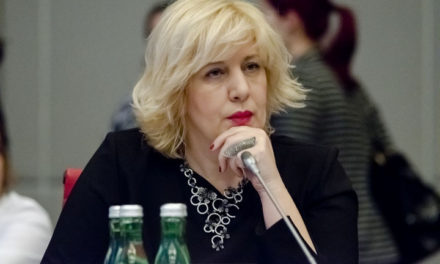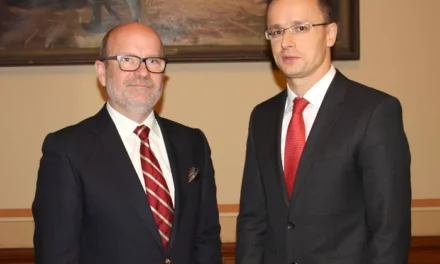The western side - by which I mean the politicians of the western media and the European Union - are watching with special interest the activities of a new Hungarian party, the Tisza party, which they hope will be able to overthrow the Hungarian conservative government.
However, neither they nor the citizens who read their news reports know the meaning of the name "Tisza" and the associations that arise with this name in Hungarian minds. In other words, why this party actually got its name.
Because it's actually a shame.
Because the Tisza party took the name of one of the great figures of Hungarian 20th century history, count István Tisza, because it wanted to appeal to the national side of the country, including those who still think of the memory of this person with respect. In the meantime, the president of the party is "modestly" trying to justify the origin of the party's name by explaining it with rhetorical reasons. Don't think that just because...
However, the use of this name is not only shameful, but also ridiculous.
It's like when someone names their dog after the former Roman emperor, Caesar - César - when it's actually nothing more than a lap dog, and secretly hopes that it will make the dog look more prestigious.

Photo: © Piotr Wawrzyniuk / stock.adobe.com
This politician should be watched, even on the street..., let alone on the podium, where he shares the country with his words, at that difficult moment when the ruling party needs more and more votes and support for the sake of the country.
This is typical of a small-minded, big-minded person who wants to win over as many people as possible with such "tricks", that is, he tries to appeal to all strata of society in this way. "what do I see on your left wrist?" before one of their gatherings. Whereupon the interviewee looked at his hand with surprise and remarked - almost casually:
"Yes, it's a rosary... I got it as a gift from an older lady and I've been wearing it ever since... The lady seems to have known that I went to the Piarists, that's why she gave it to me."
Poof! (that was the message!)
Of course, the reporter immediately asked the question:
"And do you believe that?"
"Yes," came the seemingly modest answer, but he immediately noted, "although it was a very personal question."
Of course, the question may immediately arise in our minds, why does someone wear a rosary among the multi-colored "friendship" braided bracelets? - well, that's really a private matter...
Regardless of all that, however, this "question-and-answer action" was brilliantly organized, because it managed to appeal to the part of the voters (I'm not directly using the term manipulated here) who are religious. By showing them, “look, I am just like you. That is, I am your man!”
This is also part of his campaign, which serves to bring conservative, Christian voters to his side, but we have already seen this a few years ago in the case of the mayor of Hódmezővásárhely.
In other words, he shares, he too... More precisely, he intends to share.
He may or may not succeed.
If not, it will simply disappear into the depths of history and sooner or later be forgotten. In the same way as it happened with Péter Márky-Zaj, who was declared by many to be a great hope.
However, if he succeeds, then he might really be able to write his name - admittedly, only for a short time - in the modern history of Hungarians. Namely, in the part that will discuss what caused Hungary's national rise and international recognition to fail after a hundred-year hiatus.
What was the banana peel on which the national government, which represented the long-awaited future of Hungarians, slipped? What was it that successfully strengthened the already weak inner liberal counter-wind with its "believed to be messianic" dedication? As Rasputin once did; but this "messiah" now goes by the name of Tisza - although in fact he is nothing more than a little pincsi, that is, the lackey of the opposition.
(TTG)
Featured Image: Pixabay













